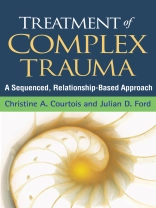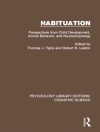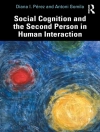This insightful guide provides a pragmatic roadmap for treating adult survivors of complex psychological trauma. Christine Courtois and Julian Ford present their effective, research-based approach for helping clients move through three clearly defined phases of posttraumatic recovery. Two detailed case examples run throughout the book, illustrating how to plan and implement strengths-based interventions that use a secure therapeutic alliance as a catalyst for change. Essential topics include managing crises, treating severe affect dysregulation and dissociation, and therapist self-care. The companion website offers downloadable reflection questions for clinicians and extensive listings of professional and self-help resources. A new preface in the paperback and e-book editions addresses key scientific advances.
See also Drs. Courtois and Ford’s edited volumes, Treating Complex Traumatic Stress Disorders in Adults, Second Edition, and Treating Complex Traumatic Stress Disorders in Children and Adolescents, which present research on the nature of complex trauma and review evidence-based treatment models.
Winner (Second Place)—American Journal of Nursing Book of the Year Award, Psychiatric and Mental Health Nursing Category
Содержание
Foreword by John Briere
I. Overview of Complex Traumatic Stressors and Sequelae
1. Complex Trauma and Traumatic Stress Reactions
2. Complex Traumatic Stress Reactions and Disorders
II. Treatment of Complex Traumatic Stress Reactions and Disorders
3. Preparing for Treatment of Complex Trauma
4. Treatment Goals and Assessment
5. Phase 1: Safety, Stabilization, and Engagement—Measured in Skills, Not Time
6. Phases 2 and 3: Trauma Memory, Emotion Processing, and Application to the Present and Future
7. Systemic Therapy across Phases: Group, Couple, and Family Modalities
III. Advanced Treatment Considerations and Relational Issues
8. Into the Breach: Voids, Absences, and the Posttraumatic/Dissociative Relational Field
9. Walking the Walk: The Therapeutic Relationship
10. Transference and Countertransference in Complex Trauma Treatment
Postscript
References
Index
Об авторе
Christine A. Courtois, Ph D, ABPP, a counseling psychologist, is retired from clinical practice and now serves as a consultant/trainer on trauma psychology and treatment. She is a Fellow of the American Psychological Association (APA) and the International Society for the Study of Trauma and Dissociation. Dr. Courtois is a past president of APA Division 56 (Trauma Psychology) and served as Chair of the APA’s Clinical Practice Guideline for the Treatment of Posttraumatic Stress Disorder in Adults. She has received the Award for Distinguished Contributions to Independent Practice from the APA, the Sarah Haley Award for Clinical Excellence from the International Society for Traumatic Stress Studies, the Award for Distinguished Service and Contributions to the Profession of Psychology from the American Board of Professional Psychology, and the APA Division 56 Lifetime Achievement Award. She is coeditor of Treating Complex Traumatic Stress Disorders in Adults, Second Edition, and Treating Complex Traumatic Stress Disorders in Children and Adolescents, and coauthor of Treatment of Complex Trauma: A Sequenced, Relationship-Based Approach.Julian D. Ford, Ph D, ABPP, a clinical psychologist, is Professor of Psychiatry at the University of Connecticut School of Medicine, where he is Director of the Center for Trauma Recovery and Juvenile Justice and the Center for the Treatment of Developmental Trauma Disorders. He has served as President of the International Society for Traumatic Stress Studies, is a Fellow of the American Psychological Association, and is Associate Editor of the Journal of Trauma and Dissociation and European Journal of Psychotraumatology. Dr. Ford has published more than 250 articles and book chapters. He is coeditor of Treating Complex Traumatic Stress Disorders in Adults, Second Edition, and Treating Complex Traumatic Stress Disorders in Children and Adolescents, and coauthor of Treatment of Complex Trauma: A Sequenced, Relationship-Based Approach. His research focuses on developmental trauma disorder and the Trauma Affect Regulation: Guide for Education and Therapy (TARGET) therapeutic intervention.












